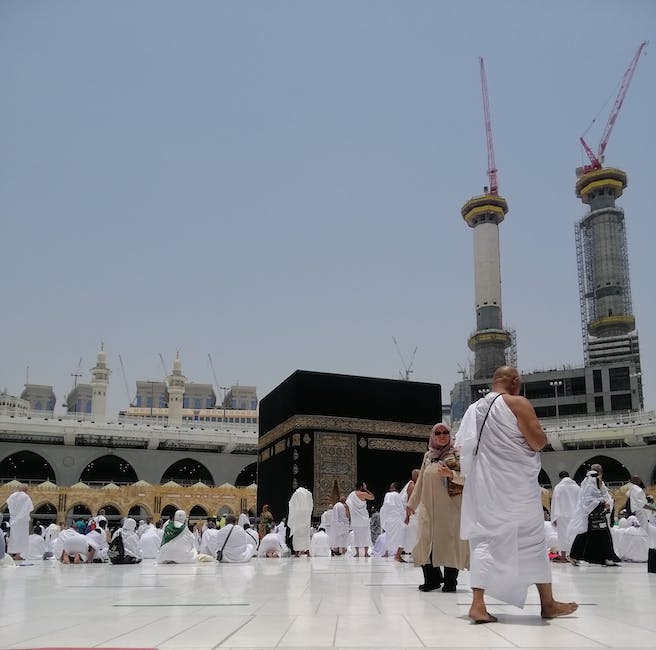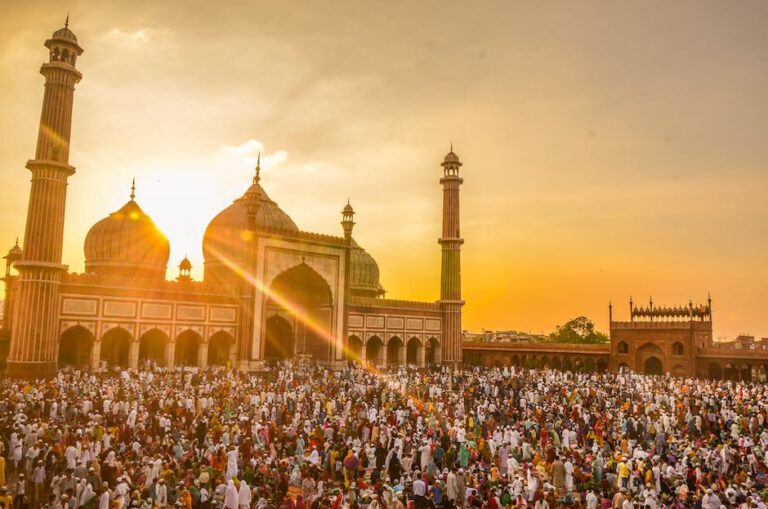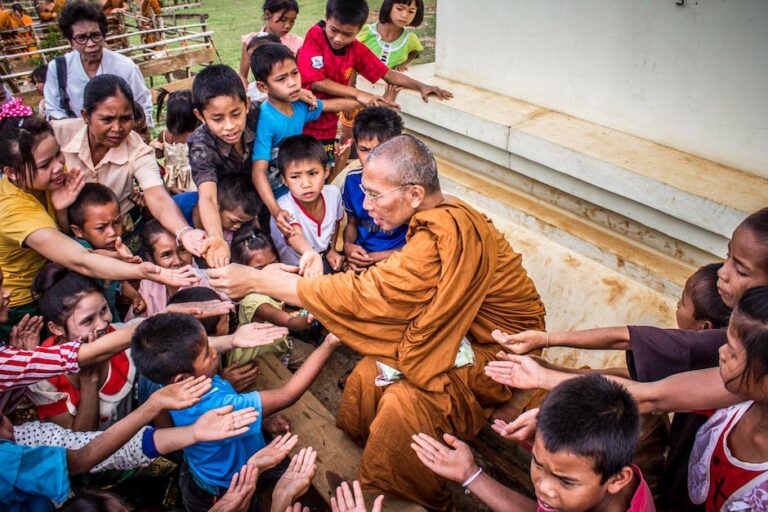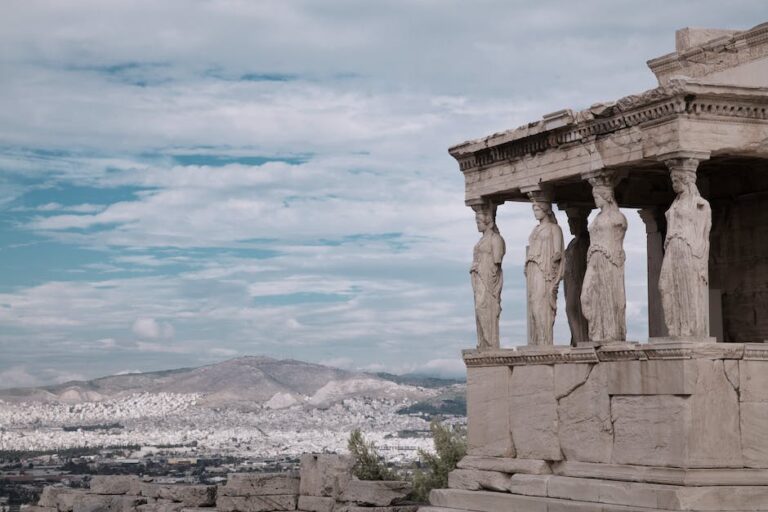Ramadan: The Month of Fasting, Faith, and Reflection
Ramadan is a sacred month in the Islamic calendar, observed by millions of Muslims worldwide. It is a time for spiritual reflection, increased devotion, and acts of kindness and generosity towards others. The 29- or 30-day period is marked by fasting from dawn to sunset, abstaining from food, drink, and other physical needs, including smoking and sex.
Ramadan, the ninth month of the Islamic calendar, is based on the observation of the new moon, marking the start of the fasting period. The practice of fasting during Ramadan is one of the Five Pillars of Islam, meaning it is a mandatory requirement of the faith.
During the month of Ramadan, Muslims are encouraged to deepen their faith and build a stronger connection with God through prayer, reflection, and self-discipline. It is also a time of increased community spirit, with families gathering together to break their fasts, attend nightly Taraweeh prayers and share in acts of charity.
The Importance of Fasting
Fasting during Ramadan is an act of worship that strengthens a Muslim’s spiritual connection with God. Through the practice of self-control and self-discipline, fasting enables Muslims to form a deeper understanding of their faith and build a greater appreciation for the blessings in their lives.
Beyond the spiritual benefits, fasting has been shown to have positive physical and mental effects on the body. By abstaining from food and drink for a set period, the digestive system is allowed to rest, improving overall health. Fasting also encourages mindfulness, reducing stress and promoting a sense of calm and inner reflection.
How to Prepare for Ramadan
Preparing for Ramadan is an essential step in making the most of this sacred month. There are a few key steps that Muslims can take to ensure they are physically, emotionally, and spiritually ready to undertake the fast.
Firstly, it is essential to transition to a healthy eating routine in the weeks leading up to Ramadan. This will prepare the body for the long hours of fasting, allowing it to adjust to a lower intake of food and water. It is also recommended to increase physical exercise to promote overall health and wellbeing.
Secondly, it is essential to focus on one’s mental and spiritual preparation. One can read the Quran, engage in spiritual reflection and seek forgiveness from others.
Finally, one can also think of ways to help their community during Ramadan, such as volunteering at a local food bank, donating to charity, or sharing time with people in need. By preparing oneself, both physically and spiritually, individuals can embrace the true essence of Ramadan.
The Spiritual Benefits of Fasting
Fasting during Ramadan provides numerous spiritual benefits to Muslims, which ultimately leads to a deeper connection with God. One of the most significant benefits is the opportunity to draw closer to Allah through self-discipline and self-control. Self-control is an essential aspect of Islamic spirituality and is highly regarded in the Islamic faith. As a result, fasting during Ramadan enables Muslims to cultivate this trait and become more spiritually grounded individuals.
Fasting also helps us to become more empathetic to those less fortunate than ourselves. By experiencing hunger and thirst for extended periods daily, we can develop a greater appreciation for the blessings in our lives and become more compassionate towards those who lack in basic needs.
Moreover, through fasting, Muslims learn to overcome their desires, impulses, and bad habits. This ability develops self-control and willpower, which are essential traits for Muslims to possess in their daily lives. By strengthening and purifying their souls, Muslims can refine their character and become better individuals.
The Night of Power (Laylat al-Qadr)
Among the unique aspects of Ramadan is the Night of Power or Laylat al-Qadr, which is believed to be one of the most sacred nights of the year. According to Islamic belief, the Quran was first revealed to Prophet Muhammad (peace be upon him) during this night, more than 1,400 years ago.
It is also believed that the worship done on this night is more spiritually significant than any other time during the year. Muslims are encouraged to seek forgiveness and blessings, recite the Quran, make du’a (supplication), and perform voluntary prayers.
While the exact date of Laylat al-Qadr is unknown, it is widely believed to fall within the last ten nights of Ramadan, with most Muslim scholars considering the odd-numbered nights to be more significant. Thus, Muslims strive to spend as much time as possible in worship during this period to seek forgiveness, blessings, and make the most of this holy night.
In summary, the spiritual benefits of fasting include self-control, empathy, and character growth among others, and Laylat al-Qadr is a night of unparalleled blessings and forgiveness. By observing Ramadan with utmost sincerity, Muslims are guaranteed to experience spiritual growth and an increase in faith that will last beyond the month of Ramadan.

Zakat: The Act of Giving to Others
Another fundamental pillar of Islam is the obligation to give Zakat, or almsgiving, which involves donating a portion of one’s wealth to help those in need. This act of charity is considered to be a vital part of Islamic worship, and it is an integral part of Ramadan.
Zakat can be given in various forms, such as monetary donations, food, clothing, or education. Muslims are encouraged to give generously during Ramadan, as it is a time of increased blessings and good deeds are rewarded even more. By giving to those in need, Muslims can strengthen their connection to the community and help alleviate the suffering of others.
Conclusion and Reflections on Ramadan
Ramadan is a time of spiritual reflection, personal growth, and communal harmony. It is a month in which Muslims strive to reach a higher level of connection with Allah through acts of worship, reflection, and compassion. In addition to fasting, Muslims also partake in nightly Taraweeh prayers, spend time reading the Quran, perform acts of charity, and break their fast with family and friends.
As Ramadan draws to a close, Muslims reflect on what they have learned and how they will continue to apply these lessons throughout the rest of the year. This period of self-reflection encourages Muslims to assess their spiritual journey and strive to become better versions of themselves.
In conclusion, Ramadan represents a time of spiritual rejuvenation, empathy towards others, and community spirit. Through fasting, prayer, and acts of charity, Muslims are given the opportunity to deepen their understanding of Islam and strengthen their relationship with Allah. As believers, it is essential to carry the lessons learned from Ramadan beyond the month and continue to practice them throughout the year.







